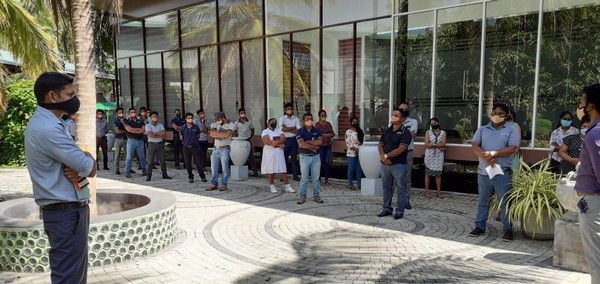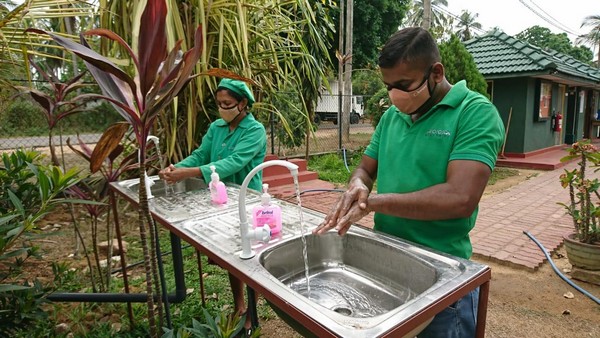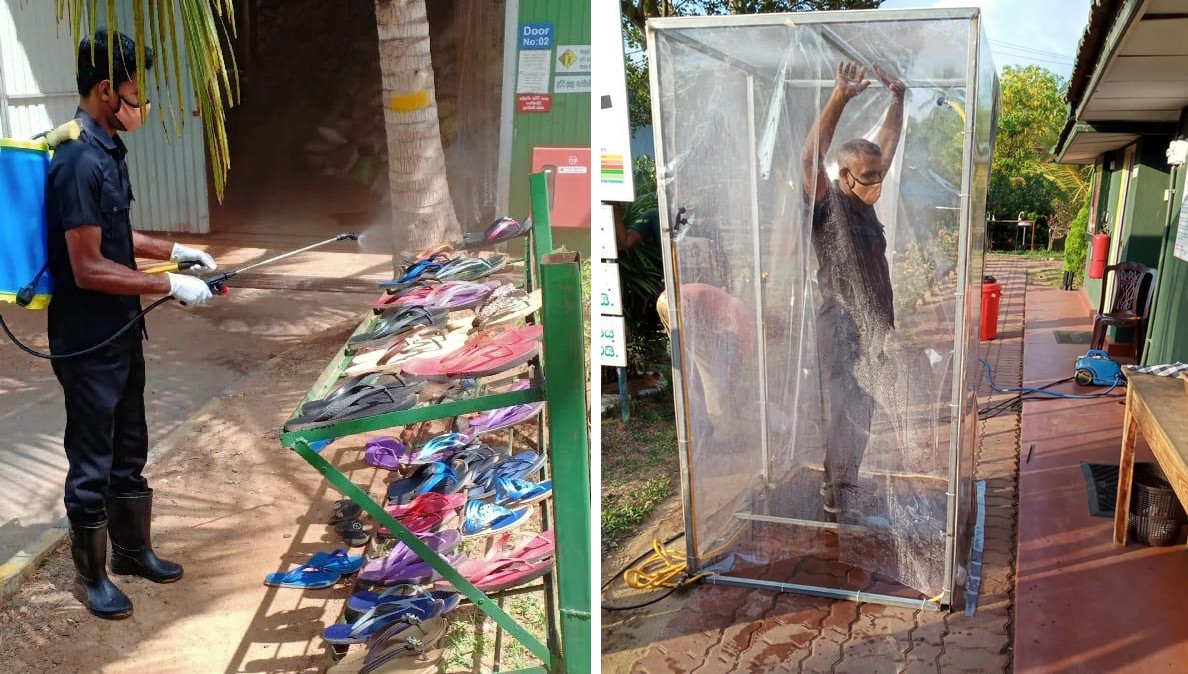Strict hygiene measures secure global coco coir supply
Thanks to the efforts of various Sri Lankan coco peat producers, the export of coir and substrate can continue. “We’re strictly following the rules of the public health care organisations and are allowed and able to continue business”, Shan Halamba, CEO of Riococo says. “It’s important to us to continue operations, but also for the growers depending on their substrates. We see that the demand for coco products from the horticultural industry is growing year by year. Then the people of Sri Lanka and the coco industry is depending on the continuity of the business. That’s why we do everything within our reach to continue our operations in Sri Lanka. All Riococo production plants are located in Sri Lanka.”
Cabins placed
The cabins placed at the Riococo coco coir production facilities looks a bit like a tanning salon or an airport checkpoint – but this for sure is not what it’s being used for. It is one of the measures taken by the company in the new operational guidelines, souring the highest disinfection possible as an answer to the global Covid-outbreak. Combined with social distancing rules, hand, body and shoe disinfection solutions and agreement for the employees on home isolation and contact regulations, the company has been able to restart business rapidly after the country’s lockdown.
For Shan Halamba these weeks have been intense, but there is a certain rest now that everything is in order. Every day the coco products of the company are delivered to the greenhouse growers in US, Canada, Mexico and many other countries and since he can follow the deliveries online, life has become more digital but also manageable from his home.

Acting rapidly
“When the outbreak took place, we knew we had to act rapidly. In the first two weeks we’ve incorporated the necessary hygiene measurements, invested in sanitation solutions like masks, booths and disinfectants and contacted all our workers. We’ve been in contact with the Coconut Sector Association and the taskforce appointed by the government to emphasise the importance of the industry. Following the information of the taskforce on the coco business, the industry was declared as essential, meaning there are opportunities to open up. Then the public health operator checked the facility to find out if we’re able to follow the rules. They are the ones deciding on whether businesses can be opened. Following their positive response, we’ve been able to continue operations only fifteen days after the lockdown. With our stocks in US and Canada we were able to bridge the gap that occurred due to this delay and some delays in transport. Now everything is back on track: shipping continues as usual from the factory to the port and via Colombo sea port to the world.”
He shows pictures of the hygiene measurements being incorporated and tells how they set up a grocery ordering system during the first weeks of lockdown, to make sure the employees could be fed and feed their families. “Now things are slowly getting back to normal, curfews are being lifted during the day time and stores are reopening in a decent manner, but during the first weeks this was an issue as well. Many of our workers are from villages nearby, something that we’ve always found important. Now this decision pays off. Even though the cities affected heavily are located in the West of the country and transport of people are limited, we still can rely on our team. Also we could hire additional people from our employee’s families and friends. We’ve trained them to join the company after a home quarantine of two weeks.”

Crisis management
It is a small relief for Sri Lanka as a whole. Shan explains how the country is hit severely for example by the developments in the textile industry. Without warning many famous brands cancelled their orders and people are out of jobs. “It is estimated that up to 700,000 Sri Lankans will lose their jobs because we’re a hub for the textile industry. Being able to continue business will help the country and fortunately the government agrees with this. Currently the coco industry is one of the important industries in the country.”
Because of the crisis management done correctly, the team with Riococo is able to respond rapidly to the new situation. This is not the first time the industry had to deal with unexpected situations. Last year the Sri Lankan coco production was affected by severe weather. “We see that professional companies invest during the good times to prepare for the bad times, to make sure growers can count on them. Thanks to the popularity of the coir substrate and the quality, the industry has been able to deliver coco coir, the preferred growing medium and the demand of coco products has been growing for years. Whether it is vegetable, flowers or medical cannabis growers, who prefer loose substrates or grow bags, they need to be able to rely on the delivery of their product in order to succeed their cultivation. What’s currently going on is something we could have never imagined, yet it is these types of uncertainties that the industry has been preparing for.”

